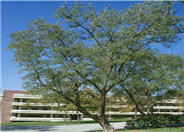
Common name:Olive, European Olive
Botanical name:Olea europaea
This broad tree will grow to 40' tall and has small, gray/green leaves with fleshy black fruit that appears in fall.
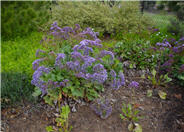
Common name:Sea Lavender, Statice
Botanical name:Limonium perezii
This mounding shrub will reach about 3' high and has large, dark green leaves with small blue and purple flowers that bloom in spring and summer.
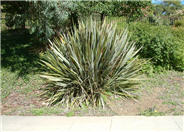
Common name:New Zealand Flax
Botanical name:Phormium tenax
New Zealand Flax is a large, bold plant with stiffly vertical, sword-like, green leaves that arise from its base. It should be grown under full sun for best color. Varieties will offer different growth habits and leaf color.
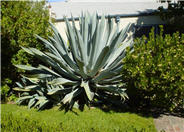
Common name:Century Plant, Maguey
Botanical name:Agave americana
Fast growing to about 6-10' tall x 8-13' wide. Wide, grey leaves have stiff terminal spines and recurved teeth on margins. Prefers full sun and well-drained situations. Prone to agave snout weevil which will eat the roots and heart out. After blooming, which could take several years. it will die but will send up new pups from around the base. Some people are allergic to the sap. Removal is difficult if unwanted. Naturalizes.
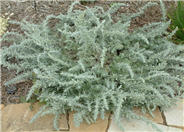
Common name:Sandhill Sage, Coast Sagebrush
Botanical name:Artemisia pycnocephala
This shrub will grow anywhere from 1-3' tall and has small gray leaves accented by yellow flowers that bloom in spring.
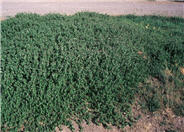
Common name:Lippia, Creeping Lippia
Botanical name:Phyla nodiflora
A ground hugging stoloniferous rugged subtropical ground cover. A lawn substitute, that can take some traffic, can be mowed. Attracts bees when it blooms. Shabby winter look. Reseeds and spreads.
| Designer: | Creative Terracing |
Photographer: GardenSoft |
Soils and Compost:
Practice grass-cycling by leaving short grass clippings on lawns after mowing, so that nutrients and organic matter are returned to the soil.
Water Saving Tip:
Eliminate runoff, especially with fixed spray sprinklers, clay soils, and slopes, by dividing the total watering time into shorter increments.
This allows water to soak in.
Integrated Pest Management:
Attract, or buy beneficial insects such as ladybugs and lacewings to control pest outbreaks in your garden.

